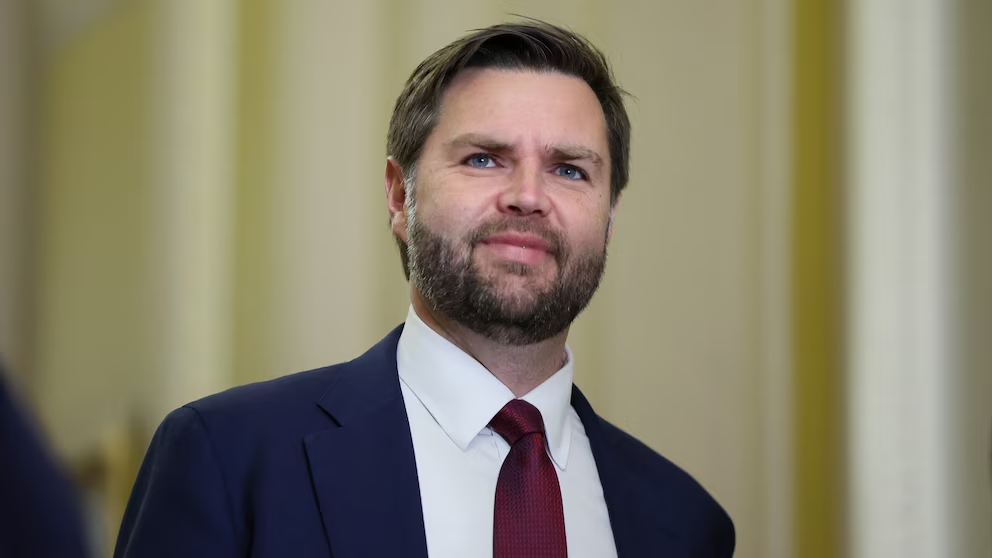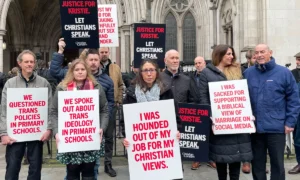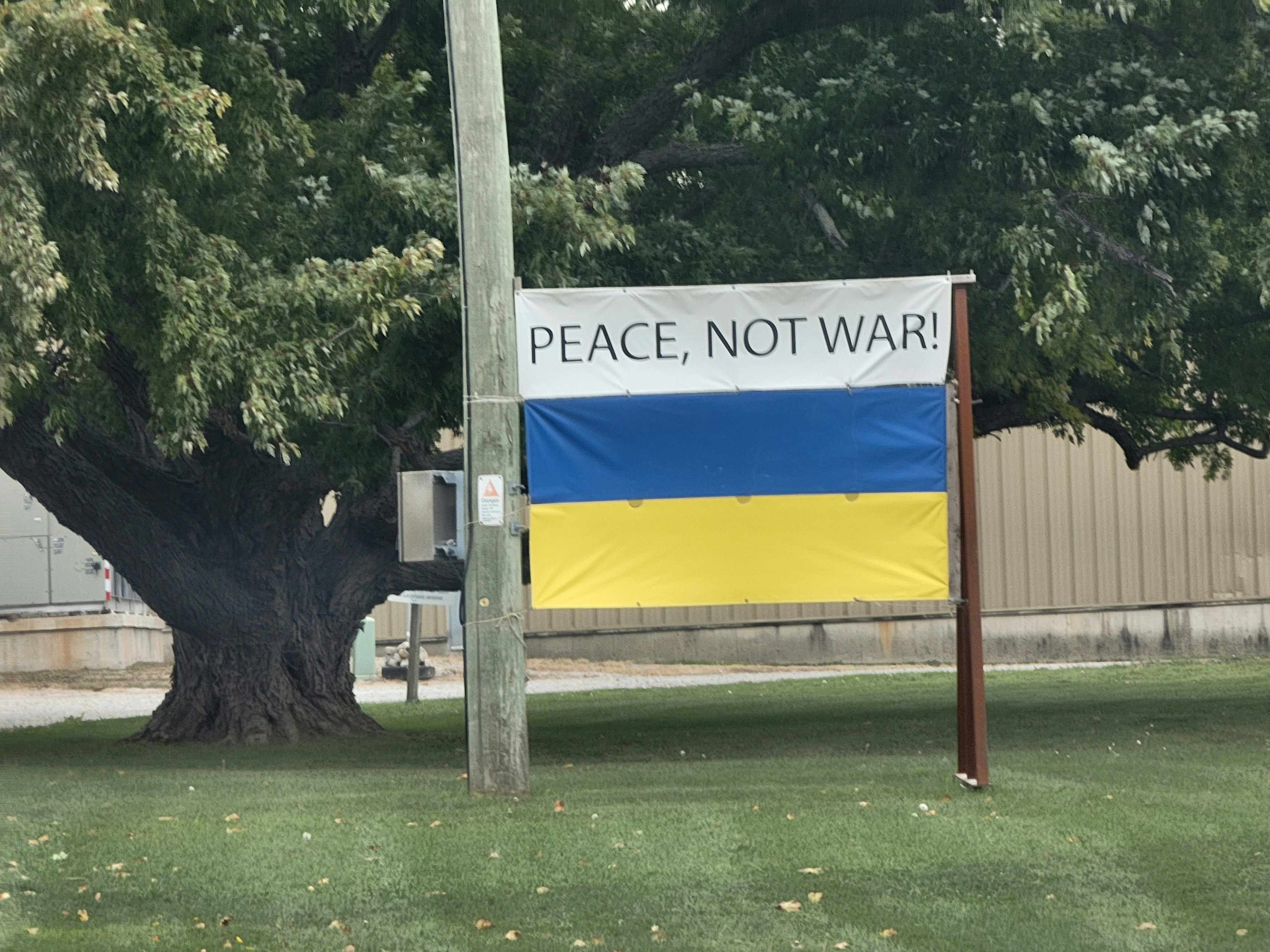JD Vance: U.S. Foreign Misadventures and the Eradication of Historic Christian Communities

Introduction to JD Vance and His Perspective
JD Vance is an American author, venture capitalist, and politician, best known for his memoir “Hillbilly Elegy,” which examines socioeconomic factors in rural America. His rise in the political arena began with his candidacy for the U.S. Senate in Ohio, where he has become a notable voice regarding various domestic and international issues. Vance’s perspective on foreign policy is particularly intriguing, as he places significant emphasis on the impact of U.S. decisions on historical Christian communities in conflict zones, reflecting both his values and political beliefs.
Vance’s approach to foreign intervention is often characterized by skepticism. He argues that U.S. involvement in overseas conflicts has often led to unintended consequences, particularly for vulnerable groups such as religious minorities. This perspective is informed by his own background and experiences, including his observations of how foreign policy affects people on the ground rather than simply assessing it from a geopolitical standpoint. His focus on the consequences that foreign misadventures can have on historical Christian communities highlights a unique angle in the discussions surrounding U.S. foreign policy.
As Vance navigates the complexities of international relations, he advocates for a more thoughtful and restrained approach to American involvement abroad. He posits that prioritizing U.S. interests should also take into account the moral imperatives facing globally marginalized groups, including Christian populations who are often caught in the crossfire of geopolitical strife. By emphasizing the need for a reevaluation of the U.S. foreign policy framework, Vance not only critiques past interventions but also seeks to promote a future that ensures the preservation of historic communities burdened by conflict, providing both a cautionary tale and a call to action for policymakers.
A Historical Overview of Christian Communities in Conflict Zones
Christian communities have existed for nearly two millennia, prominently in regions that are now embroiled in conflict, particularly in the Middle East and parts of Africa. The ancient roots of Christianity trace back to Jerusalem, where it emerged amidst diverse cultures and religious practices. From these origins, Christianity spread throughout the Roman Empire and beyond, establishing communities in various territories, ultimately leading to a rich, multifaceted cultural heritage.
In the Middle East, countries such as Iraq, Syria, and Lebanon have significant historical Christian populations. These communities, often comprised of various denominations, including Assyrians, Armenians, and Melkites, have contributed to the region’s cultural tapestry. However, the advent of modern conflicts, particularly those influenced by U.S. foreign interventions, has profoundly affected their existence. The 2003 invasion of Iraq, for example, led to intensified sectarian violence that has displaced many Christians and threatened the continuity of these ancient communities.
Similarly, in Africa, regions like North Africa and the Horn have seen the rise of significant Christian populations that have contributed to local cultures and traditions. From Coptic Orthodox Christians in Egypt to numerous Protestant denominations in Sub-Saharan Africa, these communities have faced challenges ranging from political instability to militant extremism, exacerbated by external influences, including U.S. foreign policies. The ongoing struggles in areas such as the Central African Republic and South Sudan highlight how international dynamics can impact local religious communities, leading to a loss of heritage and identity.
Overall, the historical significance of Christian communities in conflict zones is profound. Their presence not only reflects the rich heritage of these regions but also underscores the detrimental impact of external geopolitical factors on their survival. Understanding this intricate relationship is vital for recognizing the cultural losses incurred amid ongoing struggles.
The Role of U.S. Foreign Policy in Regional Conflicts
The trajectory of U.S. foreign policy over the past few decades has significantly contributed to regional instability, impacting various nations and communities, particularly minority groups like Christians. One pivotal example is the Iraq War, which commenced in 2003. The rationale for this military intervention hinged on the assertion that the Iraqi regime posed a threat due to claims of weapons of mass destruction and its alleged connections to terrorist organizations. However, the resulting conflict led to profound social upheaval, dismantling the nation’s governance structures and unleashing sectarian violence. The Christian population, once a vibrant part of Iraq’s cultural tapestry, suffered considerable persecution and displacement during this tumultuous period.
Similarly, the U.S. intervention in Libya in 2011 exacerbated existing tensions and contributed to a power vacuum that has resulted in ongoing civil strife. While the initial humanitarian intervention aimed at protecting civilians from the Gaddafi regime was commendable, the long-term implications were devastating. The collapse of central authority led to a surge in violence, increasing the vulnerabilities of minority groups, including Christians, who faced persecution and targeted violence by various militant factions. The subsequent instability has persisted, undermining efforts for democratic governance and fostering an environment of fear and instability.
Beyond these examples, various U.S. military actions across the globe have similarly resulted in destabilization. From Syria to Afghanistan, interventions have often been driven by strategic interests rather than a nuanced understanding of local dynamics. This has led to significant ramifications for local populations, including the erosion of historic Christian communities. The repercussions of U.S. foreign policy decisions thus manifest not only in geopolitical dynamics but in the lives and livelihoods of those caught in the crossfire, highlighting the urgent need for a more considered approach to international engagement.
The Humanitarian Impact on Christian Communities
The humanitarian crises stemming from U.S. foreign misadventures have taken a profound toll on historic Christian communities across the globe. Displacement, violence, and systemic persecution have become frequent narratives that underscore the vulnerabilities these communities face. In recent years, areas such as the Middle East and North Africa have witnessed a drastic decline in Christian populations, a trend closely linked to regional instability that has been exacerbated by U.S. interventions in foreign conflicts.
One significant consequence of military interventions has been the displacement of Christians from their ancestral homelands. For example, the rise of extremist groups like ISIS resulted in mass migrations that decimated long-standing Christian communities in Iraq and Syria. Tens of thousands of families were forced to flee, leaving behind homes, churches, and cultural heritage. According to a report by the Pew Research Center, the Christian population in Iraq has plummeted from around 1.5 million in the early 2000s to less than 200,000 today, demonstrating the severe impact on the community’s continuity.
Violence against Christians has also intensified in conflict zones where U.S. foreign policy has had a direct influence. Reports from various human rights organizations highlight instances of targeted attacks, including bombings of churches and abduction of individuals based solely on their faith. In addition to the physical dangers, there is an emotional toll that manifests in fear and trauma among survivors, many of whom face an uncertain future. Persecution of Christians often comes in the form of legal discrimination, social ostracism, and economic hardship, further isolating these communities.
Individual stories of hardship reveal the grim reality faced by these groups. Many displaced families struggle to find safe havens, often relying on humanitarian aid that is insufficient to meet their basic needs. The erosion of social structures, the loss of cultural identity, and the challenges of resettlement present multi-faceted obstacles that persist long after conflicts have simmered down. The international community must take an active role in addressing these humanitarian crises, providing the necessary support to restore hope to historic Christian communities affected by these misadventures.
The Voices of the Displaced: Personal Stories
Throughout history, communities have faced profound transformations, often at the hands of political decisions made far from their homes. These changes have led to the displacement of countless individuals, particularly among historic Christian communities in conflict regions. The narratives emerging from these communities are crucial for understanding the multifaceted impacts of U.S. foreign policy on people’s lives. From the Middle East to South Asia, personal stories unveil the human dimension of geopolitical decisions.
One compelling testimony is that of a Syrian Christian family who fled their village in 2013, amidst rising violence and extremist ideologies that threatened their existence. The father recounts the harrowing experience of leaving everything behind – from their home to cherished memories – in search of safety. He describes the intense fear that engulfed their once-peaceful community as fighters roamed the streets, targeting religious minorities. The loss of their traditions and the trauma associated with displacement have marked their lives irrevocably.
Another poignant account comes from an Iraqi Christian who witnessed the destruction of sacred sites after the U.S. invasion in 2003. For her, the removal of Saddam Hussein, while initially seen as a hopeful step, spiraled into a nightmare of sectarian violence that dismantled her family and forced them to seek refuge in neighboring countries. She speaks of the heart-wrenching decision to leave behind her birthplace and the tears shed over the beloved church that stood as a testament to her community’s faith for centuries.
Such narratives not only speak to the immediate traumas faced by these individuals but also reflect broader themes of resilience and the quest for identity amidst displacement. While the geopolitical landscape is often evaluated through the lens of strategy and power, it is the personal accounts of these displaced communities that bring to light the profound human cost of such foreign policies. The impact of war and instability continues to echo in the hearts of those who once thrived between their sacred landmarks and cultural heritage.
JD Vance’s Critique of U.S. Foreign Policy
JD Vance presents a critical analysis of U.S. foreign policy, particularly as it pertains to the safeguarding of minority communities around the globe. Vance argues that the approach taken by the United States has often been misguided, leading to unintended consequences that directly impact vulnerable populations, notably Christian communities in regions experiencing conflict or oppression. His critique underscores the disconnect between U.S. diplomatic efforts and the lived realities of these communities, suggesting that the policies in place frequently fail to prioritize their protection.
Central to Vance’s argument is the assertion that U.S. foreign policy has increasingly focused on strategic interests rather than humanitarian concerns. He argues that this pragmatic approach often overlooks the historical presence and significance of Christian communities in areas such as the Middle East, where their existence is under threat due to geopolitical instability. The lack of directed foreign aid or protective measures for these communities reflects a broader apathy that Vance believes is detrimental not only to those communities but also to the reputation of the United States as a champion of human rights.
Furthermore, Vance highlights the intersection of international relations and domestic policy, asserting that the neglect of minority communities abroad illustrates a failure to uphold American values on the global stage. He suggests that a more robust commitment to defending persecuted groups should be integrated into U.S. foreign policy initiatives. This, he posits, would strengthen the United States’ moral authority and foster more stable international relations. In his view, an adaptable yet principled approach to foreign engagement is essential, particularly when dealing with nations where religious minorities face extinction.
Overall, Vance’s critique calls for a reevaluation of the United States’ foreign policy framework, urging that it be recalibrated to ensure the protection of all minority communities, especially those with historic ties to Christianity. By addressing these concerns, he advocates for a foreign policy that not only recognizes but actively supports the preservation of diverse cultural and religious identities worldwide.
The Broader Implications for U.S. Foreign Relations
JD Vance’s critique of U.S. foreign misadventures highlights a critical issue that extends beyond regional conflicts: the implications of failing to protect historic Christian communities. These communities, which have often been integral to the cultural fabric of their nations, are now facing unprecedented threats due to various geopolitical dynamics. The historical presence of these groups contributes to the cultural diversity and richness that represent the value of pluralism. When the U.S. fails to advocate for their protection, it not only accelerates their potential extinction but also raises serious questions about the moral grounding of its foreign policy.
The erosion of these communities reflects poorly on the United States’ commitment to human rights and humanitarian principles. As an influential global power, the U.S. has historically positioned itself as a defender of the oppressed and a champion of religious freedom. However, when it neglects to act in defense of vulnerable populations, the implications for its international standing are profound. Such inaction can result in declining credibility on the world stage, leading allies and adversaries alike to question the sincerity of American values.
The failure to protect these historic communities also has far-reaching consequences for U.S. foreign relations. It can exacerbate existing tensions, fuel anti-American sentiment, and contribute to regional instability. Moreover, the loss of cultural diversity not only impoverishes the global tapestry but can also lead to a shallow understanding of complex international issues. The U.S. must therefore reassess its foreign policy framework to ensure it embodies a commitment to safeguarding cultural heritage, thereby promoting a more stable and harmonious international environment.
Potential Paths Forward: Policy Recommendations
The protection of historic Christian communities and other minority groups adversely affected by U.S. foreign actions demands a multifaceted approach. As U.S. policy decisions often have far-reaching impacts, it is essential to implement strategies that prioritize humanitarian interests and foster international cooperation. One potential path forward includes prioritizing diplomatic engagement with nations hosting these communities. By employing diplomacy, the U.S. can promote respect for religious freedoms while encouraging governments to adopt policies that protect minorities from persecution. Diplomatic efforts could involve high-level dialogues focusing on the importance of safeguarding diverse cultural heritages.
In addition to diplomatic efforts, increasing humanitarian aid is crucial. Allocating resources specifically aimed at supporting historic Christian communities can ensure their survival amid ongoing turmoil. Humanitarian aid can encompass various areas, including financial assistance, educational support, and healthcare services. The U.S. government should work with non-profit organizations and religious institutions involved in relief efforts to enhance the reach and efficacy of aid programs. By increasing funding for humanitarian initiatives, the U.S. can directly contribute to the stability and resilience of affected communities.
Moreover, international collaboration should be prioritized to create cohesive strategies that protect minority groups globally. Joint efforts with international organizations, such as the United Nations or regional bodies, can facilitate a more robust response to persecution. An emphasis on establishing a framework for monitoring human rights violations can allow for timely interventions. This collaboration should also extend to engaging in dialogue with other nations experiencing similar challenges, fostering a united front against discrimination and violence.
Collectively, these recommendations underscore the importance of a comprehensive, cooperative, and humanitarian-centered approach to address the challenges faced by historic Christian communities and other minorities impacted by U.S. foreign policy decisions. By implementing these strategies, we can work toward a more just and equitable global landscape, where all communities can thrive in safety and dignity.
Conclusion: The Responsibility of Nation-Building
The multifaceted nature of nation-building is underscored by the consideration of historical contexts and the unique challenges faced by communities, particularly those of historic Christian significance. JD Vance emphasizes a critical awareness regarding U.S. foreign interventions, suggesting that an approach rooted in empathy and historical understanding is essential for fostering a stable international community. The responsibility of engaged nations extends beyond immediate political or military objectives; it encompasses the preservation of cultural identities and the safeguarding of vulnerable populations whose presence has been integral to regional histories.
For the United States, constructive engagement with global communities requires a commitment to addressing not just the symptoms of conflict but also the underlying socio-political dynamics that precipitate instability. This becomes particularly urgent when considering the plight of historic Christian communities that have faced existential threats amidst regional upheaval. Vance posits that by adopting a more nuanced perspective on foreign policy—one that respects the autonomy and traditional values of these communities—the U.S. can contribute to the establishment of a more just and equitable international order.
Moreover, the integration of local voices and stakeholders into the nation-building process is paramount. Rather than imposing solutions from afar, aligning U.S. policy with the realities on the ground can empower communities and honor their historical legacies. Bridging cultural gaps through education, diplomacy, and sustainable development initiatives can mitigate the unintended consequences of foreign interventions.
In essence, the role of the United States in international relations must shift towards a holistic approach that values coexistence over conflict and prioritizes the protection of historically significant communities. By embracing this responsibility, the U.S. has the potential not only to prevent further disintegration of historic Christian communities but also to engender a more peaceful global landscape.











Leave a Reply
You must be logged in to post a comment.